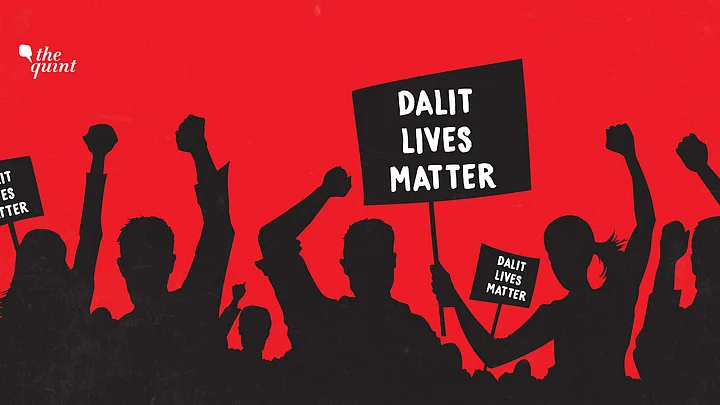On 23 May, Nabaraj BK, a 21-year-old Dalit man from Rukum in northern Nepal went with 18 of his friends to Soti village to bring home as his wife, his girlfriend of over two years, Rosy Malla. Malla’s family, of a privileged caste, did not want a Dalit son-in-law, and got 50-60 villagers of Soti to chase BK and his friends to the Bheri river and brutally beat them.
The villagers killed BK and his friends Tikaram Sunar, Ganesh Budha, Lokendra Sunar, and Govinda Shahi, whose bodies were recovered from the river.
On the same day, in Rupandehi in southern Nepal, a 13-year-old Dalit girl named Angira Pasi was raped by a 25 year old man, Birendra Bhar, who was her neighbour and who belonged to a privileged caste. Residents of the village and a local government official, Amar Bahadur Chaudhary, decided that Angira should be married off to the rapist. Bhar’s family members brutally beat up Angira, and two hours later, Angira was found dead, hanging from a tree.
Nepal Has Laws to Protect Minorities – So, Why Aren’t They Being Enforced?
These two horrific incidents are among the 27 cases of caste-based discrimination and violence that Nepal Monitor has compiled in 2020 alone, and Dalit activists say that many more cases have gone unreported. Although the Interim Constitution of 2006 enshrined “Rights against untouchability and caste-based discrimination” and the Caste-Based Discrimination and Untouchability Act of 2011 outlined punishments for discrimination and violence against Dalits, impunity still remains rampant. The police initially refused to register a complaint on behalf of Angira Pasi, detaining Bhar and his family members only after public outrage.
Regarding the Rukum incident, the government has formed a five-member probe team to investigate the deaths.
However, officials at various levels of government, have equivocated about the severity of the crime.
Home Minister Ram Bahadur Thapa is reported to have said that the young men ran and jumped into the river, and Attorney General Agni Kharel stated that the facts collected by the government-formed probe committee may be ‘different’ from facts reported in the media. Ruling party lawmaker Janardan Sharma, who represents West Rukum (where Soti village is located) in the House of Representatives, has been accused of having close ties with the perpetrators.
Police Apathy & Connivance
Activists calling for justice for the Dalit victims have reason to be skeptical of the government probe. In 2016, the then prime minister Pushpa Kamal Dahal directed the concerned authorities to form a committee for the investigation of the alleged murder of Ajit Mijar, a Dalit man who was killed after he married a Brahmin woman. In September 2016, it was reported that the committee found that the police had fabricated Mijar’s post-mortem report, but nobody was charged, and as per a media report, Mijar’s body continues to lie at the morgue at TU Teaching hospital in Kathmandu, since his family reportedly “don’t want to receive the body.”
There is much frustration over police conduct in cases of violence against Dalits.
There is a clear pattern of police personnel in various parts of the country refusing to even register cases filed by Dalit victims: The suspicious death of Jenisha Nepali in Jajarkot, the rape of Gandhi Sah in Siraha, and the beating of Manika Sunar for ‘contaminating’ water – are just a few examples of cases in the past two years in which the identifiable perpetrators were clearly not punished.
What Explains Slow & Inadequate Response Of Govt to Crimes Against Dalits?
The State has been at best, non-existent, and at worst, a terrorising force for many Dalits across the country for decades, and the recent killings have been a fresh reminder to Nepalis that caste-based inequalities remain as pernicious as ever. Inspired by the American #BlackLivesMatter campaign, Dalit activists have launched a #DalitLivesMatter social media campaign to demand justice for BK, Pasi, and others who have been killed. There have been protests in some parts of the country, including in the capital cit of Kathmandu, but the political will to take caste-based crimes seriously appears to be limited.
This, despite the fact that the ruling communist party came to power with promises of delivering justice to historically marginalised communities, including Dalits.
The slow and platitudinous responses of both government officials and non-Dalit Nepalis to the murders are especially striking when contrasted with the immediate action that was taken over the recent border row with India, when the government tabled a constitutional amendment in Parliament to give legal backing to a new map that shows Kalapani, Lipulekh and Limpiyadhura as part of the country’s territory.
While politicians have been trying to distract their constituents with nationalist sentiments roused by the border controversy, people from marginalised populations in Nepal, including Dalits, face desperate conditions in the COVID-19 crisis. There have been multiple reports of segregation between Dalits and non-Dalits in government quarantine facilities, and the economic pain brought on by the lockdown has hit many Dalits, who were already disproportionately poor, the hardest. The economic crisis, public health crisis, and crisis of the justice system have compounded each other, and in the midst of it all, governmental apathy has been resounding.
(Abha Lal is a Nepal-based journalist and has reported extensively on caste-based violence in the country. She tweets @AbhaLal2. This is an opinion piece and the views expressed are the author’s own. The Quint neither endorses nor is responsible for them.)
